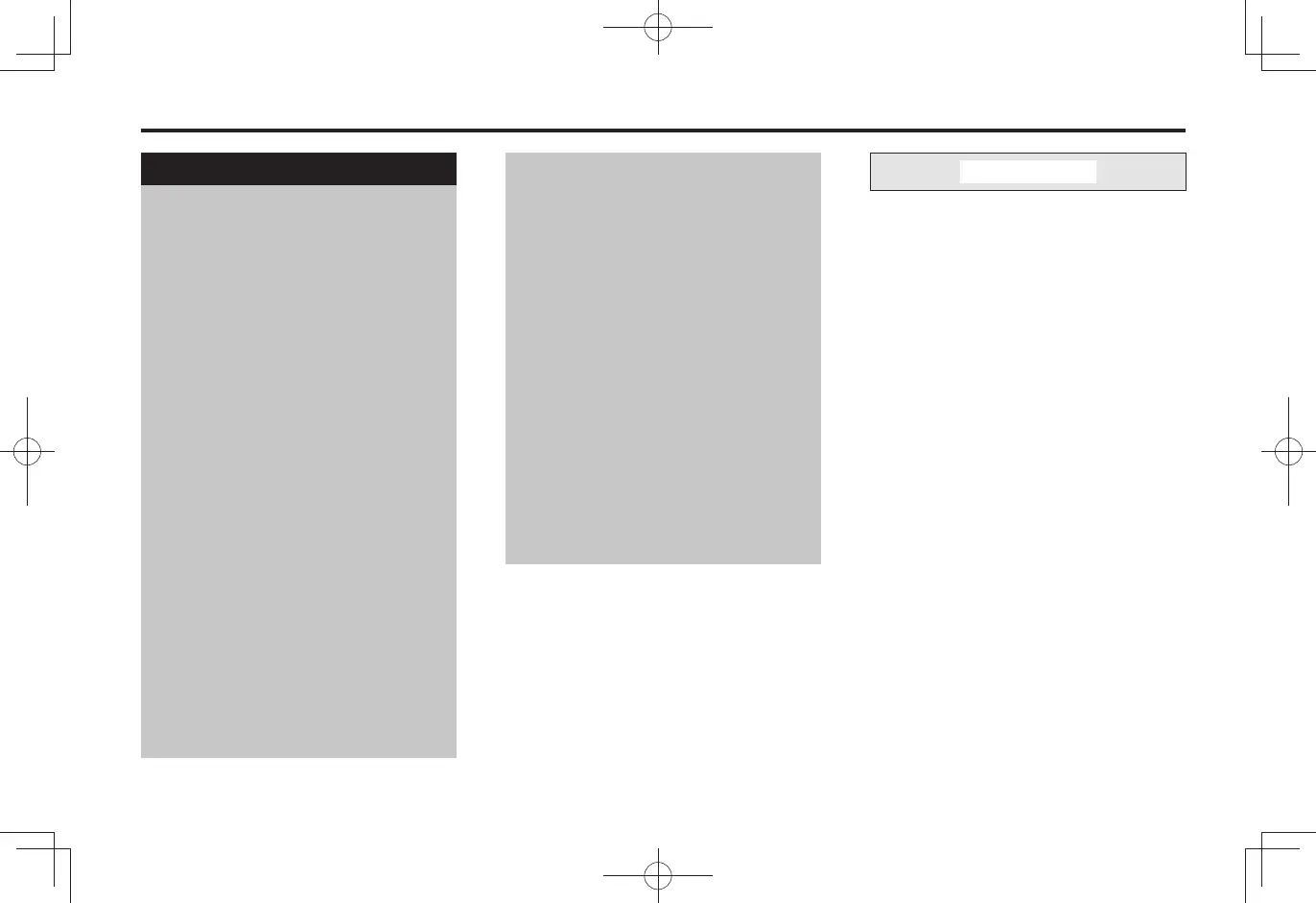SERVICE AND MAINTENANCE
- 5–13 -
WARNING
• Even when the engine has been
stopped, the engine coolant in
the radiator remains under
pressure. Immediately removing
the radiator cap could cause
steam or hot water to blow out,
and you could be scalded as a
result. The engine coolant in the
reserve tank may also be hot.
Immediately removing the cap
could cause hot water to blow
out, and possibly scald you.
• Check, replenish or change the
engine coolant only after the
engine has sufficiently cooled
down.
• When removing the radiator cap
and reserve tank cap, use a thick
cloth to cover the cap and turn it
little by little.
• Keep fire away from the engine
coolant since it is easy to catch
fire. Also it may catch fire if it is
splashed on some parts that are
in high temperature such as a
manifold. Take care not to splash
it.
• Engine coolant is toxic and must
not be ingested. If the engine
coolant is mistakenly ingested,
immediately vomit it and seek
prompt medical attention.
• If the engine coolant gets in your
eyes, rinse it off immediately with
a large amount of water for 15
minutes or longer. Also, if still
abnormality such as irritation is
felt, seek medical attention.
• If the engine coolant gets on your
skin, rinse it off using a soap with
a large amount of water. Also, if
abnormality is seen, seek medical
attention.
• For storage, close the cap
securely and keep it in a place
inaccessible to children.
CAUTION
• Do not overfill the reserve tank.
• The radiator cap must not be
removed unless absolutely
necessary.
• Supplement inhibitors or additives
claiming to provide increases in
cooling capability that have not been
specifically approved by Isuzu are
not recommended in the cooling
system.
QKR-IE-14424805234ALL.indb5‒13QKR-IE-14424805234ALL.indb5‒13 2017/09/2713:34:522017/09/2713:34:52

